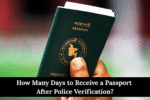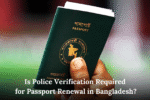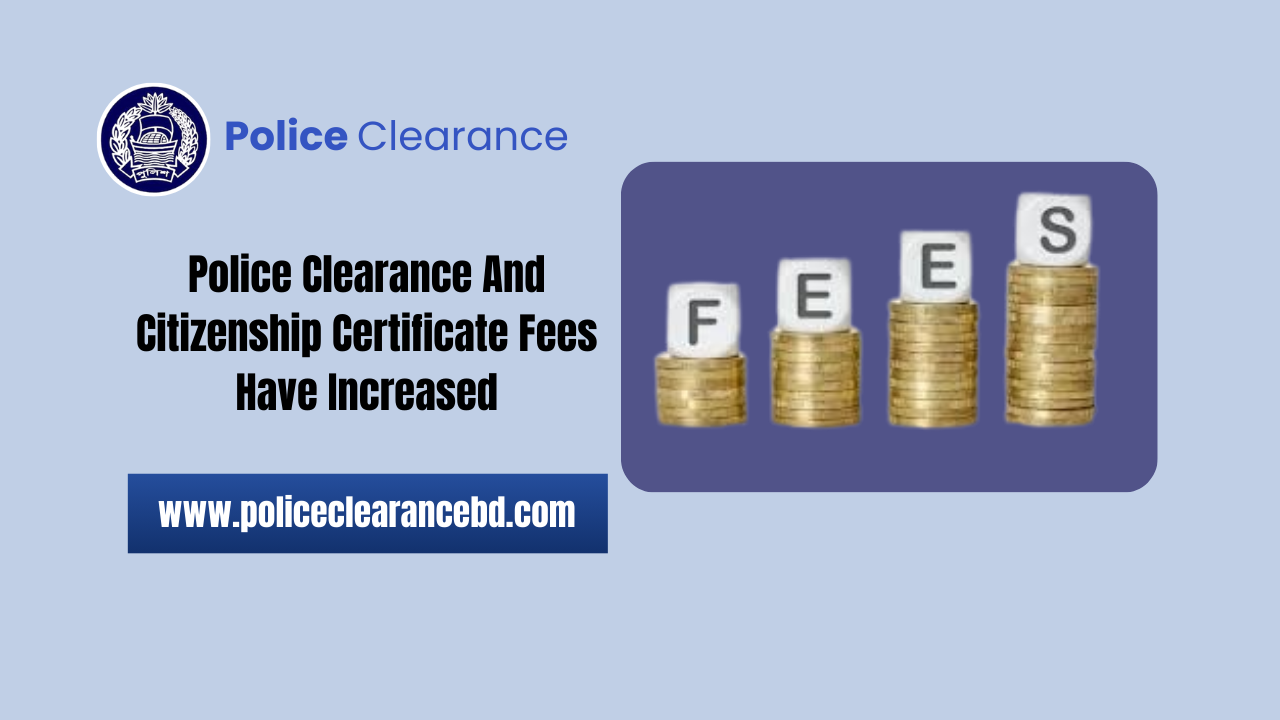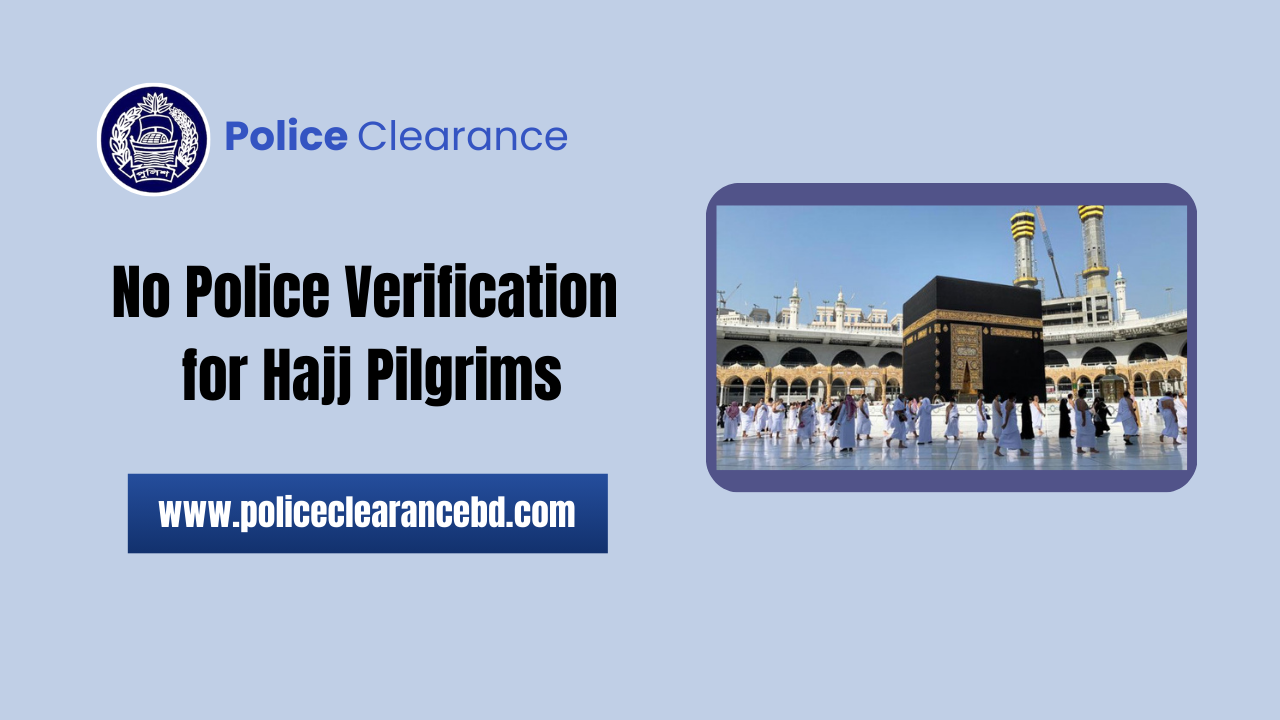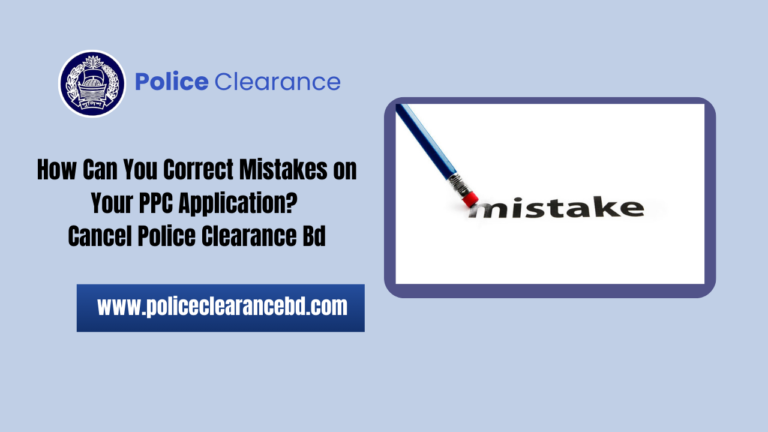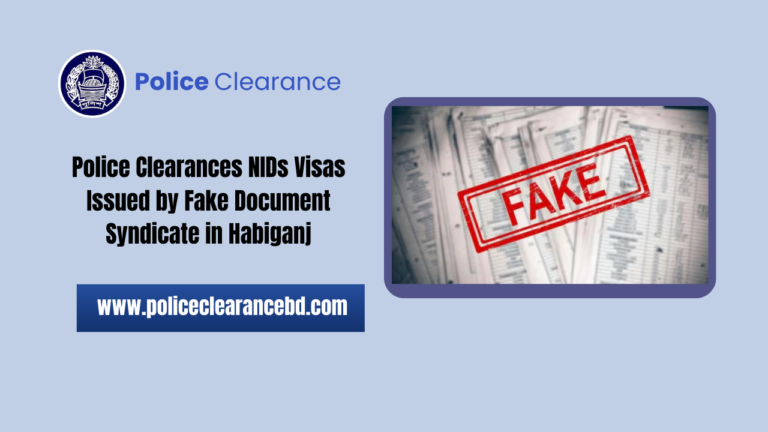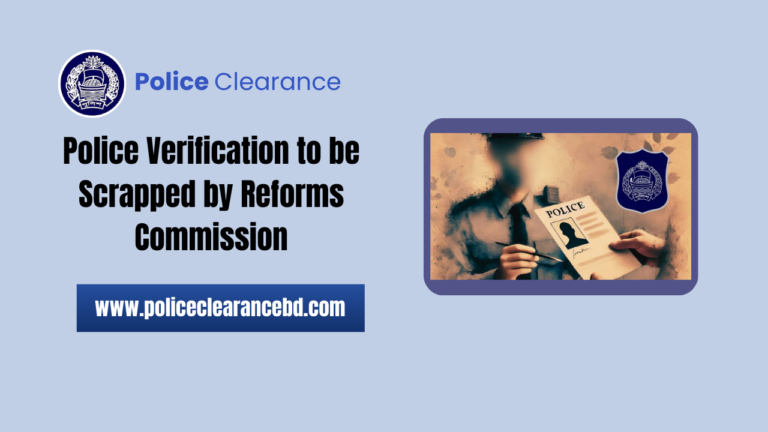Police Clearance For Tk 5,000, Bribe Demanded Tk 25,000

Police Clearance For Tk 5,000, Bribe Demanded Tk 25,000.In many companies and to obtain a visa or immigration, you need a police clearance certificate. In essence, it proves that a person is not involved in any criminal activity and there is no case against him. Police clearance certificates have been allegedly harassed at various levels. There have even been demands for large bribes. The certificate can be obtained by paying money later.
Read Also: Police Clearance
Growing Demand For Police Clearance Certificates in BD
The demand for police clearance certificates has skyrocketed due to Bangladeshis’ increasing desire to study, work, or settle abroad. Through the official PCC Portal, Bangladesh Police has made the application process accessible online. In spite of the streamlined digital platform, service delivery is often hampered by bureaucratic red tape or corrupt practices, especially at local police stations.
Allegations Surface – Bribe Demanded for Police Clearance
Recent events have exposed the ugly side of what should be a simple and fair process. Shafiq Munshi faced severe harassment while attempting to obtain his Police Clearance Certificate. Though he applied online as per government procedures, he received no assistance from the Dasar police station or even after visiting the Superintendent of Police’s office multiple times. Eventually, he was redirected to the Kalkini police station, where a disturbing turn of events unfolded.
There, Md. Sohel Khan, a computer operator at the Kalkini police station, allegedly demanded a bribe of 25,000 Taka in exchange for ensuring the issuance of the police clearance certificate. He reportedly told Shafiq that without paying the bribe, no one would cooperate or process the application.
Partial Bribe Paid, Certificate Issued After Delay
Feeling helpless, the applicant eventually paid 5,000 Taka in cash, after which Sohel Khan agreed to submit the application online. He promised that the certificate would be issued within 15 days, starting from July 1. As claimed, on July 20, Shafiq finally received his Police Clearance Certificate from the District Superintendent of Police’s office.
Denials and Ongoing Investigation
When asked about the incident, Md. Sohel Khan denied taking any money and referred the matter to the Officer-in-Charge (OC) of the police station, stating, “If you have anything to say, come and talk to OC sir.”
In response, OC Sohel Rana of Kalkini Police Station remarked, “Tell the person from whom money was taken to come directly to the police station. We will try to find out what happened. Police clearance is supposed to be free of cost apart from the official fees.”
Furthermore, Madaripur Additional Superintendent of Police Md. Jahangir Alam assured that the issue is under investigation, saying, “The police are taking the matter seriously. If the police member is found guilty, appropriate action will be taken.”
Administrative Confusion Between Kalkini and Dasar
The situation also exposes an underlying problem regarding jurisdiction. Dasar Police Station, formerly part of Kalkini upazila, was formed by splitting five unions. However, many passport holders still use their old Kalkini address to avoid bureaucratic hassles, which causes confusion during police clearance verification. As a result, individuals like Shafiq find themselves caught between two administrative zones, making them vulnerable to such exploitation.
Why This Issue Matters
This case is not an isolated one. There have been multiple reports of citizens being asked to pay under-the-table amounts to expedite their police clearance. These acts of corruption are not only unethical but also illegal and erode public trust in law enforcement institutions.
When a basic document like a Police Clearance Certificate becomes a tool for harassment and bribery, it directly impacts thousands of people who rely on it for better futures abroad. It also tarnishes the image of the Bangladesh Police, which has otherwise taken commendable steps toward digitalization and public-friendly services.
Conclusion
The demand for a Police Clearance Certificate in Bangladesh is legitimate and growing. However, cases like that of Shafiq Munshi shed light on the unethical practices that plague the system at local levels. While digitization has made things easier, strict monitoring, transparency, and zero tolerance for corruption are essential to ensure justice and convenience for every citizen. The government must act swiftly and strictly to maintain the credibility of this vital public service.


